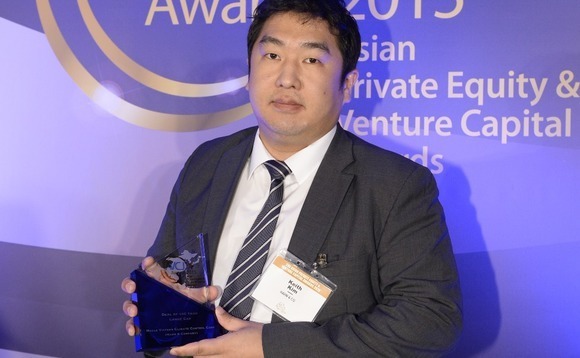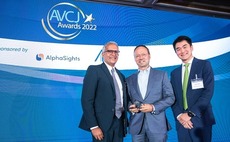
AVCJ Awards 2015: Deal of the Year - Large Cap: Halla Visteon Climate Control

Hahn & Co spent three years talking to Visteon about its Korean subsidiary Halla Visteon Climate Control before sealing a proprietary deal supported by innovative funding
Many private equity investors keep a quiet eye on businesses they would particularly like to own and might one day become available, even if the possibility of a deal sometimes appears slim. For Scott Hahn, CEO of Korean GP Hahn & Co, Halla Visteon Climate Control (HVCC) was in that category.
Hahn & Co. had a proven aptitude and appetite for auto parts, having acquired Coavis, leading manufacturer of fuel pump modules, in 2012. But HVCC was a different proposition, Korea's largest independent auto parts maker and the second-largest producer of automotive thermal systems in the world.
"We signed a NDA [non-disclosure agreement] for this opportunity in 2012," Hahn says. "We spent a long time cultivating the relationship and it was a very large deal, but this was a company we had always wanted to own and run."
Sensing an opportunity
Halla Climate Control was formed in 1986 as a joint venture between Mando Machinery Corporation - a subsidiary of car parts maker Mando Corp, which was in turn controlled by domestic conglomerate Halla Group - and Ford Motor Company. Halla Group collapsed during the Asian financial crisis and so Ford bought its partner's 35% stake and assume control. Visteon then spun out from Ford to become an independent auto parts manufacturer, taking the 70% interest in the Halla Climate Control with it as part of the deal.
Hahn & Co's opportunity emerged when Visteon launched a tender offer to take full ownership of HVCC but was unable to win minority shareholders' support. "When the tender offer was unsuccessful, we were able to provide an alternative solution." says Hahn, who by this point had established a dialogue with Timothy Leuliette, Visteon's US-based CEO.
At the time, Hahn & Co. was still investing its debut fund, a $750 million vehicle raised in 2011 following the founder's departure from Morgan Stanley Private Equity Asia. Any deal involving Halla Climate Control would be difficult to absorb, but then the target became even bigger.
The company produces air-conditioning systems for the interior of vehicles, thermal management systems that extract and re-use heat produced by engines, and cooling solutions for electric-powered and hybrid vehicles. Visteon had a similar climate control business outside of Korea and it decided to combine the two, forming HVCC.
Suddenly, the company had 33 plants, five R&D centers and seven marketing facilities across 18 countries, with 15,500 employees. Sales revenue rose from KRW3.65 trillion ($3.1 billion) in 2012 to KRW5.19 billion in 2013, following integration of the sister business, while total assets increased from KRW2.23 trillion to KRW2.95 trillion.
If Hahn & Co. wanted to buy HVCC, how would it fund the deal? "It coincided with our main second fundraise so we decided to raise more capital as we started to get some conviction about the opportunity," says Hahn.
The firm closed its second fund at the hard cap of $1.2 billion in the first week of December and raised a separate $700 million co-investment pool to support the HVCC acquisition. That deal, worth $3.6 billion, was announced in mid-December, with Hankook Tire participating as a co-investor. The transaction was negotiated on a proprietary basis, although Visteon was obliged to hold a go-shop period in order to reassure shareholders that it had sought best value. There was no change in the arrangement.
HVCC - which has since been renamed Hanon Systems - The HVCC investment does not involve shared control, with Hahn & Co. holding 51% to Hankook's 19%. However, AVCJ understands that the strategic player, which is the world's seventh-largest tire manufacturer, has first right of refusal on the asset, although only within a set time period.
Future plans
Hanon reported revenue of KRW5.45 trillion for the 2014 financial year, while net income dropped to KRW290.4 billion from KRW312.1 billion. Korea accounts for approximately one third of sales, down from close to half in 2012, and Hyundai Motor and Ford remain significant global customers, contributing 50% and 25% of revenue, respectively.
The sector is characterized by a high degree of customer concentration but there are plans to diversify Hanon's revenue base. Hahn & Co. is also focused on improving operational efficiency across the sales and production functions. In particular, there has been some structural re-organization with a view to creating a fully integrated and independent regional player. The CEO of Coavis has been brought in to lead these efforts.
Hanon has set a target of $10 billion in sales by 2020 - more than doubling the 2014 figure - and Hahn expects to see a change in the drivers of this growth. The company's traditional strength has been in-cabin air conditioners and heaters, but in the future greater importance will be placed on solutions that address engine downsizing and increasingly strict regulations on emissions and fuel economy.
Hanon has already developed a centrifugal air compressor that was installed in the first mass-produced hydrogen fuel cell electric vehicle. Another innovation is a system that recycles waste heat produced by the heat pump and puts it to other uses, helping reduce a vehicle's energy consumption and increase driving range on a single battery charge.
"The thermal and emissions side of the business is somewhat overlooked but we think over the next several years there will be tremendous change in the auto industry and we can position Hanon to capitalize on these exciting changes," Hahn says. "It is about half and half in terms of revenue right now, but the thermal and emissions management side is growing faster."
Latest News
Asian GPs slow implementation of ESG policies - survey
Asia-based private equity firms are assigning more dedicated resources to environment, social, and governance (ESG) programmes, but policy changes have slowed in the past 12 months, in part due to concerns raised internally and by LPs, according to a...
Singapore fintech start-up LXA gets $10m seed round
New Enterprise Associates (NEA) has led a USD 10m seed round for Singapore’s LXA, a financial technology start-up launched by a former Asia senior executive at The Blackstone Group.
India's InCred announces $60m round, claims unicorn status
Indian non-bank lender InCred Financial Services said it has received INR 5bn (USD 60m) at a valuation of at least USD 1bn from unnamed investors including “a global private equity fund.”
Insight leads $50m round for Australia's Roller
Insight Partners has led a USD 50m round for Australia’s Roller, a venue management software provider specializing in family fun parks.








